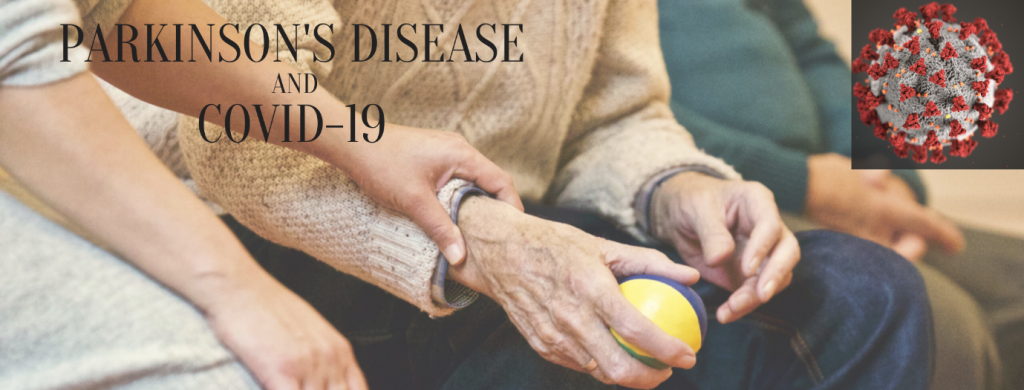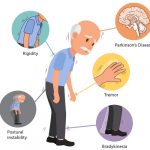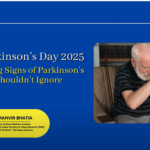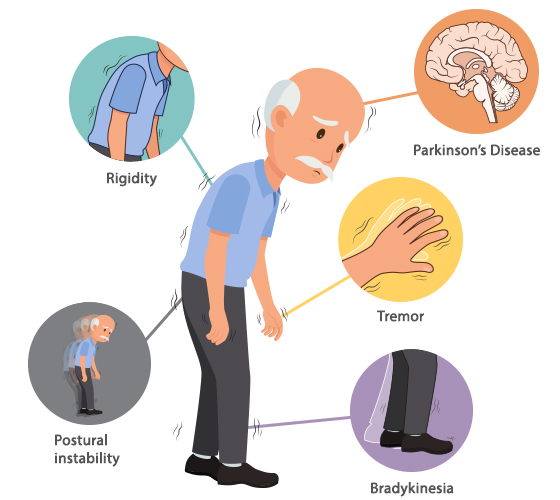Are Parkinson’s Disease Patients More Vulnerable to COVID-19?
July 16th 2020 || Parkinson’s Disease, COVID-19 by Dr.Manvir Bhatia & Saunri

The Sars-CoV-2 virus does not differentiate between whom it infects, but the elderly population, and those with comorbidities are at a risk of suffering from the more severe symptoms of COVID-19. Parkinson’s Disease (PD) is a neurodegenerative disease that most commonly causes symptoms such as tremors in the limbs, hands, rigidity and stiffness of the body, instability and loss of balance, and slow movement. It occurs due to the loss of dopaminergic neurons, especially in the substantia nigra, a part of the brain that is important in controlling movement. COVID-19 infection is of concern for older patients that suffer from advanced PD, due to the rigidity of their respiratory tract muscles and impairment of the cough reflex, which makes them more vulnerable.
Link between PD and COVID-19
Sars-CoV-2 enters cells using the Angiotensin-Converting Enzyme 2 or ACE2 receptor that is present especially extensively on the surface of lung cells. ACE2 receptors are also abundantly present in dopaminergic neurons in the brain. This is of particular concern because dopaminergic neurons are already deficient in function in PD patients. Further attack by the virus can cause damage to the dopaminergic neurons, which can increase the severity of PD. The entry of the Sars-CoV-2 virus into the central nervous system (CNS) most likely happens through the nasal cavity or through the vagus nerve that connects the respiratory tract to the CNS.
Impact of COVID-19 on the lives of PD patients
- Preventive measures such as lockdown and quarantine have brought about drastic and sudden changes in our lives, that require adaptation and flexibility which is mediated by good dopaminergic signaling. However, due to the dysfunction in dopaminergic signaling, PD patients show inflexibility and are not able to adjust to the changing situation.
- Not being in control of the situation and failure to adapt, further increases stress in PD patients. The increased stress can temporarily worsen various motor symptoms of PD, such as tremors. Stress can also reduce the effect of dopaminergic medication given to PD patients.
- The mental health of PD patients may be affected as they may not be able to meet their near and dear ones.
- Restricted movement can prevent activities such as daily walks outside their homes, which can decrease their motivation and further increase their disability.
- The non-motor symptoms of PD such as insomnia and constipation can increase due to lack of enough physical activity.
Preventive measures to be taken by PD patients
Vitamin D has shown antiviral properties. Early PD patients have lower Vitamin D as compared to the healthy population. Due to restricted movement in the sun because of lockdown and quarantine, Vitamin D supplements should be taken by those suffering from PD. Caregivers should ensure that PD patients get enough activity inside their homes, through exercises such as aerobics. Exercise has a positive impact on the mood of PD patients. The use of exer-games, that provide full-body exercise inside the comfort of your homes, would help to improve physical activity and mood through improved energy levels
For more information regarding Parkinson’s Disease and COVID-19, you can visit the Neurology and Sleep Centre, the 1st sleep centre in the country accredited by Indian Board of Sleep Medicine at L-23, Hauz Khas Enclave, New Delhi, Delhi-110016 (INDIA)
Or give a call on +91-11-46070321, +91-9643500270,
Or write toinfo@neurologysleepcentre.com











Keep it up
Really you are a great Doctor and really your blog is very good and useful.
I am also a Doctor of Neurology. I am a neurologist specialist and I have also a hospital. And I have a website also kindly visit for more information https://www.asianneurocentre./com
Thank You.